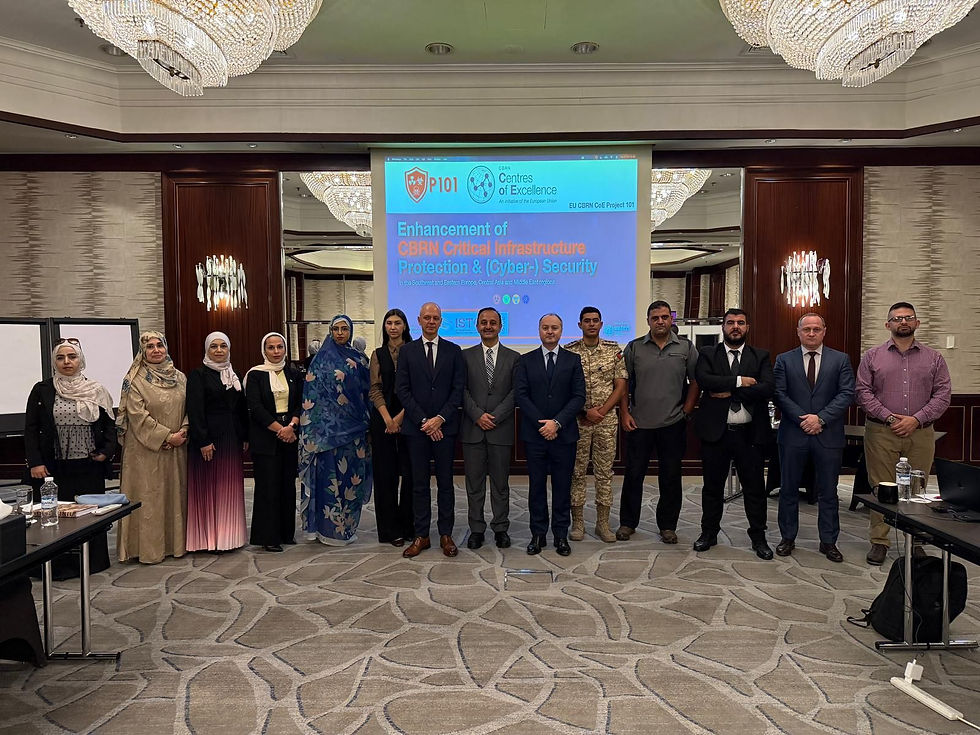29 April - 2 May 2025 - Consultation Visit to Mongolia
- May 3, 2025
- 2 min read
Updated: Jun 15, 2025
From April 30 to May 2, 2025, the P101 Project Team conducted a successful consultation visit to Ulaanbaatar, Mongolia, as part of the ongoing efforts to assess and support the protection of CBRN (Chemical, Biological, Radiological and Nuclear) critical infrastructure in partner countries. This visit marked an important step in strengthening dialogue and technical cooperation between the project team and Mongolian institutions working on national security, public health, emergency response, and environmental protection.
The mission began with a series of high-level introductory meetings with the Project 101 National Team and key governmental bodies, including the National Counter-Terrorism Council, the National Police Agency and Internal Troops, the Ministry of Environment and Climate Change, and the National Emergency Management Agency (NEMA). These engagements provided valuable context on Mongolia’s institutional landscape, strategic priorities, and inter-agency coordination mechanisms for managing CBRN threats.
One of the core elements of the visit was a field assessment of the hazardous chemical and mercury storage facilities located at the National Rescue Brigade in Ulaanbaatar. This site visit allowed the P101 Team to directly observe current storage conditions, environmental vulnerabilities, and potential risks posed to nearby residential areas. Discussions with NEMA officials further clarified the scope of challenges linked to confiscated chemical stockpiles, aging infrastructure, and the absence of technical SOPs and emergency response frameworks. The visit highlighted the urgent need for upgraded safety standards, risk mitigation strategies, and potential relocation options.
The second day continued with a technical visit to the Nuclear Physics Research Center at the National University of Mongolia, where the team explored national capabilities in radiation monitoring, scientific research, and education related to nuclear safety.
On the final day, the delegation met with the Ministry of Health, focusing on public health preparedness in the context of CBRN incidents, and with the Nuclear Energy Commission, discussing regulatory frameworks and oversight of nuclear-related activities.
The visit concluded with a final site assessment of the Biocombinat State-Owned LLC, an important facility for biological material processing and livestock vaccine production.
Throughout the three-day consultation, the Mongolian authorities provided comprehensive and transparent insights into national practices, gaps, and ambitions related to CBRN risk reduction. The P101 team gathered essential data to inform upcoming capacity-building actions, while reinforcing cooperation with key national institutions committed to enhancing civil protection and infrastructure resilience in line with international standards.






